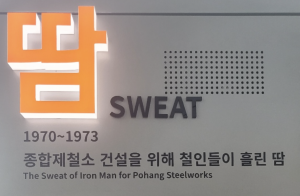Pohang: POSCO Museum
Photo essay of wall text of POSCO Museum of Pohang

Photo essay of wall text of POSCO Museum of Pohang

XXX

1. "as Richard Danzig has argued in the case of bioterrorism, despite the striking increase in funding for biodefense in the U.S., there is still no 'common conceptual framework' that might bring various efforts together and make it possible to assess their adequacy."
2. “Who should lead the fight against disease? Who should pay for it? And what are the best strategies and tactics to adopt?”
3. In contrast to classic public health, preparedness does not draw on statistical records of past events. Rather, it employs imaginative techniques of enactment such as scenarios, exercises, and analytical models to simulate uncertain future threats.
4. emergency response is acute, short-term, focused on alleviating what is conceived as a temporally circumscribed event; whereas “social” interventions—such as those associated with development policy—focus on transforming political-economic structures over the long term
This article examines how disaster investigations in the United States have evolved over time, from the burining of the capitol building near the birth of the republic through the theater fires and boiler explosions of industrialization to the collapse of the world trade centers at the present, showing how the modern, bureaucratic system of disaster investigation was built.
The college was created to continue New York State's position as a leader in homeland security, cybersecurity and emergency preparedness and as a response to the growing need for professionals in those fields. Advances in technology, and increased threats to terrorism and cybersecurity in the past few decades called for the formation of this college. Overall it was a strategic political and economic decision by Governor Andrew Cuomo as it would provide training in a field that's expected to grow by 650,000 employees (for cybersecurity) in the next decade*.
The Center for Prisoner Health and Human Rights is located at the Miriam Hospital of The Alpert Medical School of Brown University in Providence, Rhode Island.
The argument is supported with case studies, anecdotal evidence from medical officers, research on the history of the article, and news reports regarding the law.
The authors, Vicanne Adams, Taslim Van Hattum, and Diana English work at the University of California San Francisco in the department of anthropology, history, and social medicine. The department’s research includes aspects of global health, social theory, critical medical anthropology, and disaster recovery.
The policy doesn't specifically address the elderly or children, who are very vulnerable populations during disasters/ emergencies (but it does address pets and animals in Title IV).